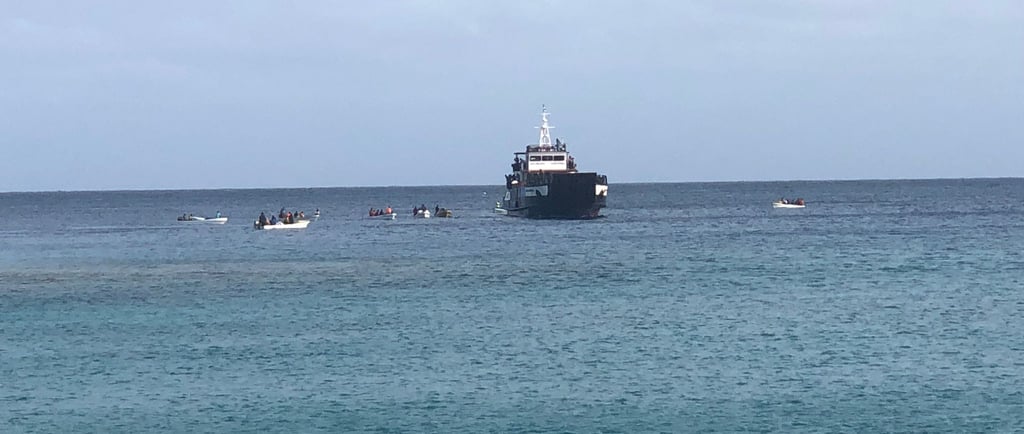Transforming Domestic Shipping Services in Rural Maritime Areas in Fiji


The domestic shipping services to the rural maritime areas in Fiji have long been dependent on subsidies and a supply chain business model that promotes route monopolization. However, this approach has led to several negative consequences over the past two decades, including suppressed commercial activity, poor efficiency, and increased marginalization of rural communities. As Fiji aims to achieve its ambitious maritime industry emission goals of 40% reduction by 2030 and net zero emissions by 2050, it is crucial to acknowledge the need for a comprehensive overhaul of the maritime sector in the country.
One of the key challenges faced by domestic shipping services in rural maritime areas is the reliance on subsidies. While subsidies can provide short-term relief, they often discourage competition and innovation, leading to complacency and inefficiency in the long run. Instead of relying solely on subsidies, it is essential to explore alternative models that promote fair competition and encourage private sector participation.
Critically these subsidies encourage the monopolization of critical rural maritime shipping routes by subsidising a single operator, restricting routing and fixing cargo and passenger fares. As a result a few major players dominate the market, limiting choices for consumers and stifling competition. This lack of competition not only affects the affordability of shipping services but also hampers the development of a robust and efficient supply chain network. Introducing measures to promote fair competition, such as allowing route flexibility, sharing subsidies across multiple shipping companies based on services, can help improve efficiency and eventually drive down costs.
The negative impact of the current system is most acutely felt by rural communities. The default monopolization of routes often results in limited access to goods and services, higher prices, and reduced economic opportunities for these communities. To address this marginalization, it is also crucial to prioritize the development of infrastructure and services in rural areas. This includes investing in port facilities, improving connectivity, and providing support for local businesses to thrive.
As Fiji strives to achieve its emission reduction targets, the maritime sector must play its part in transitioning towards a more sustainable future. It is imperative that these deficiencies in the existing system be addressed immediately while efforts are underway in exploring alternative fuel sources and adopting cleaner technologies. Investing in hybrid or electric vessels, implementing energy efficiency measures, and promoting renewable energy solutions will significantly contribute to reducing the carbon footprint of domestic shipping services but there are immediate steps that need to be undertaken now.
In conclusion, the domestic shipping services to rural maritime areas in Fiji require a comprehensive overhaul in the subsidised structure to address the challenges of suppressed commercial activity, poor efficiency, and increased marginalization of rural communities. By planning a gradual move away from reliance on subsidies, promoting fair competition, and investing in sustainable practices, Fiji can transform its maritime sector and contribute to a more inclusive and environmentally friendly future.

